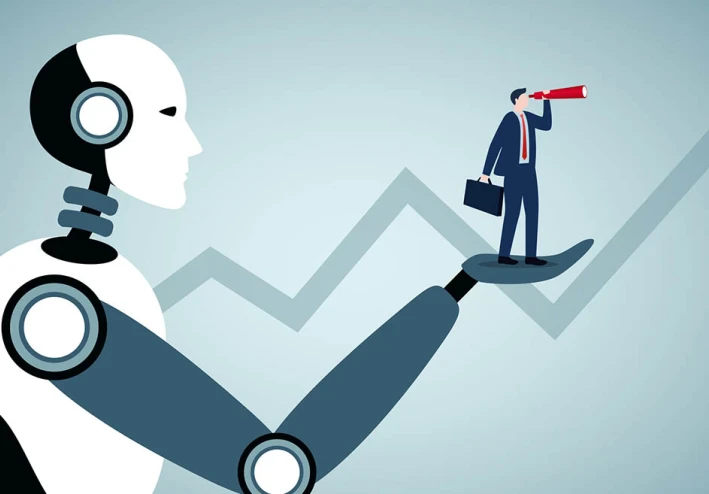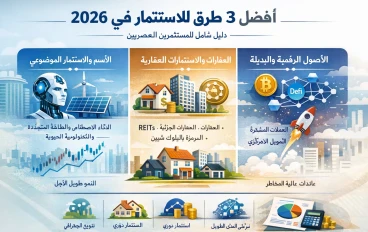
Artificial Intelligence and the Future of the Labor Market
 Artificial Intelligence and the Future of the Labor Market
Artificial Intelligence and the Future of the Labor Market
Artificial Intelligence (AI) is one of the most transformative technologies of our time, reshaping the global labor market at a rapid pace. This article explores how AI impacts the job market, the most affected sectors, jobs at risk of automation, new opportunities and skills emerging, and recommendations to adapt to this significant shift.
1. How AI is Changing the Labor Market
Automation and Task Transformation
AI goes beyond automating routine tasks; it now performs complex activities such as financial analysis, medical diagnosis, programming, and even creative arts. Estimates suggest that up to 30% of current jobs in the U.S. could be fully automated by 2030, and 60% of jobs will see significant changes in task nature due to AI.
Most Affected Sectors
- Administrative and Clerical Jobs: Data entry, accounting, and secretarial work are highly susceptible to automation.
- Retail and Banking Services: Teller jobs, customer service, and technical support are declining due to AI-driven chatbots and self-service systems.
- Manufacturing: Industrial automation and smart robotics reduce the need for human labor on production lines.
- Legal and Financial Services: AI can review contracts and analyze financial data, threatening roles like legal assistants and financial analysts.
Least Affected Sectors
- Healthcare: While some administrative tasks are automated, roles requiring human interaction, such as nursing and psychotherapy, remain less vulnerable.
- Skilled Trades: Electricians, plumbers, and construction workers are difficult to automate fully in the near future.
- Personal Services and Education: Teaching, caregiving, and hospitality still require a human touch.
2. Jobs at Risk and New Opportunities
Jobs Threatened by Automation
- Globally, around 300 million jobs could disappear by 2030 due to AI.
- In the U.S. alone, approximately 50 million jobs, particularly entry-level positions, face high automation risk.
- Women and youth are more vulnerable, with 79% of working women in America employed in high-risk jobs for automation.
Emerging Jobs and Skills
Despite risks, AI creates new roles such as:
- AI Development and Maintenance: Machine learning engineers, data engineers, and AI infrastructure specialists.
- AI Ethics and Governance: Professionals who review and ensure ethical AI use.
- Prompt Engineering: A new specialty focused on designing effective inputs for generative AI systems.
- Data Analytics, Cybersecurity, and Smart Product Management.
- Supporting Roles: AI trainers, customer experience designers, and data quality controllers.
Studies show that AI-related jobs often command salary premiums up to 28% over traditional roles.
3. Skills Needed in the AI Era
To thrive in an AI-driven world, workers need:
- Technical Skills: Machine learning, programming (Python, Java), data analysis, natural language processing, math, and statistics.
- Soft Skills: Critical thinking, problem-solving, effective communication, teamwork, and continuous learning.
- Ethical Awareness: Understanding privacy, transparency, and fairness issues related to AI.
4. Recommendations for the Future of Work
Education and Training Reform
- Integrate AI concepts into curricula from early education and train teachers accordingly.
- Expand vocational training and short certification programs in AI fields.
- Promote lifelong learning and reskilling opportunities for at-risk workers.
Labor Market Policies
- Support vulnerable groups (youth, women, rural populations) with targeted programs.
- Encourage public-private partnerships to align education with labor market needs.
- Incentivize companies to invest in employee AI training through tax breaks or support funds.
Promote Equity and Inclusion
- Ensure access to AI education and training for marginalized communities.
- Monitor AI’s labor market impact continuously and update policies based on data.
5. Future Outlook
Experts predict AI may eliminate up to one billion jobs globally by 2030 but will also create millions of new positions in previously non-existent fields. By 2030, intelligent systems may handle most office tasks, while human skills like creativity, critical thinking, and social interaction become increasingly valuable. Roles combining technical knowledge with human capabilities—such as AI ethics management and intelligent system supervision—will gain prominence.
Conclusion
Artificial Intelligence presents both challenges and opportunities for the labor market. While many jobs will be automated, AI will also open new avenues for innovation and high-value employment. Adapting to these changes requires investment in education, skill development, and flexible government policies that ensure fair distribution of opportunities and risks. The future belongs to those who can learn continuously and adapt to new technologies






































